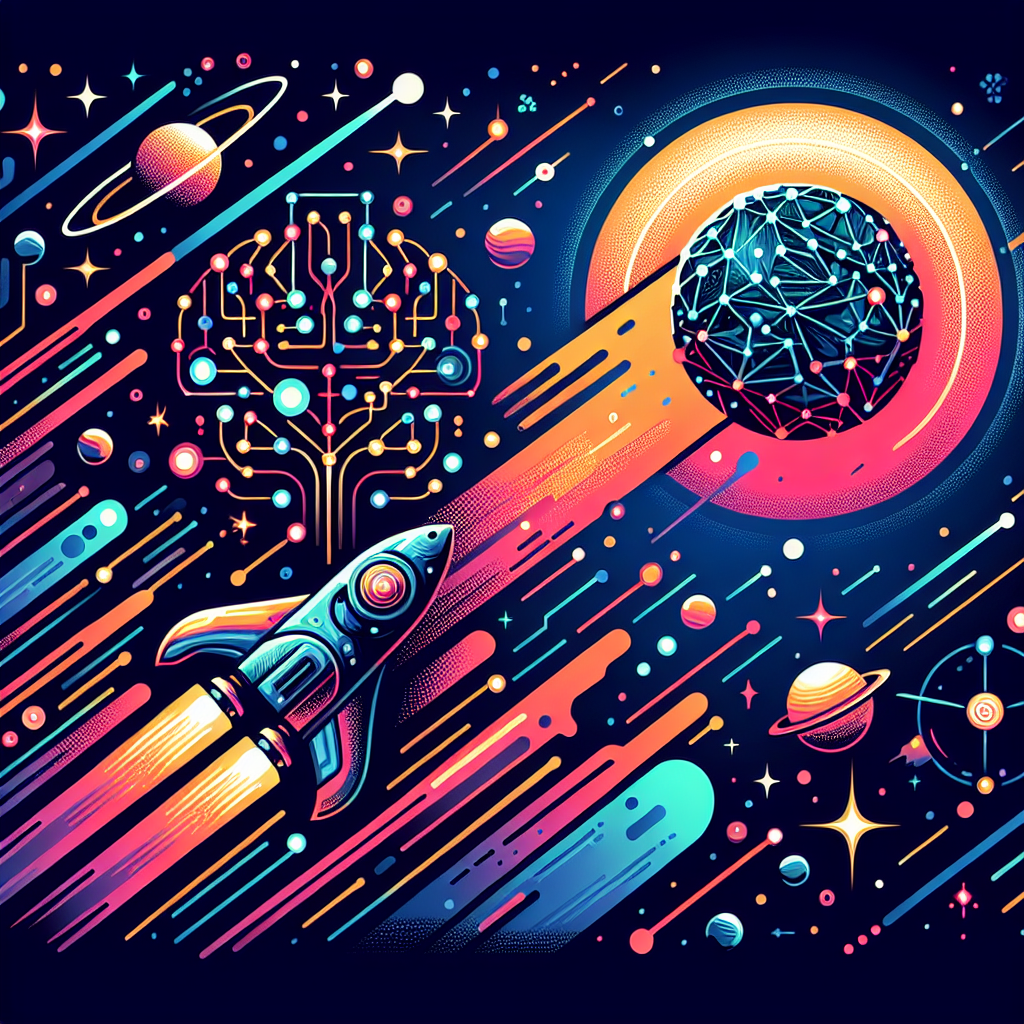The Future of AI in Space Exploration
In recent years, artificial intelligence (AI) has emerged as a powerful tool in the field of space exploration. From guiding rovers on Mars to analyzing data from telescopes, AI is revolutionizing the way we explore the cosmos. As technology continues to advance, the future of AI in space exploration looks promising, with new opportunities and challenges on the horizon.
AI in Space Exploration Today
Currently, AI is being used in a variety of ways to enhance space exploration. One of the most well-known examples is the Mars rover missions, where AI algorithms help navigate the rover over the rugged terrain of the Red Planet. These algorithms analyze images taken by the rover’s cameras and make decisions on where to go next based on the terrain and obstacles in the way.
AI is also being used to analyze large amounts of data collected by space telescopes. For example, the Kepler Space Telescope, which searches for exoplanets orbiting other stars, generates massive amounts of data that need to be analyzed to identify potential new planets. AI algorithms can sift through this data much faster than humans, helping astronomers discover new planets more efficiently.
Another area where AI is making a big impact is in autonomous spacecraft. These spacecraft can make decisions on their own without human intervention, allowing them to react quickly to changing conditions in space. For example, the Juno spacecraft, which is currently studying Jupiter, uses AI to adjust its trajectory and instruments based on real-time data from the planet.
The Future of AI in Space Exploration
As technology continues to advance, the future of AI in space exploration looks bright. Here are some ways AI is likely to be used in the coming years:
1. Autonomous Missions: In the future, we can expect to see more autonomous missions to other planets and celestial bodies. These missions will be able to make decisions on their own, without constant communication with Earth. This will allow for more flexibility and efficiency in exploring the cosmos.
2. Advanced Data Analysis: AI algorithms will continue to improve in their ability to analyze large amounts of data quickly and accurately. This will help astronomers discover new planets, stars, and other celestial objects more efficiently.
3. Robotics: AI-powered robots will play a bigger role in space exploration, both on the surface of other planets and in space. These robots will be able to perform complex tasks, such as repairing spacecraft or building structures, without human intervention.
4. Space Traffic Management: As more countries and companies launch satellites and spacecraft into space, the need for AI-powered space traffic management systems will grow. These systems will help prevent collisions and ensure the safe operation of spacecraft in Earth’s orbit.
5. Exploration of Deep Space: AI will play a key role in future missions to explore deep space, such as sending spacecraft to the outer reaches of the solar system or beyond. AI algorithms will help navigate these missions and make decisions on how to best achieve their scientific goals.
Challenges and Ethical Considerations
While the future of AI in space exploration looks promising, there are also challenges and ethical considerations that need to be addressed. One of the biggest challenges is ensuring the safety and reliability of AI systems in space. Space is a harsh environment with high levels of radiation and temperature extremes, which can affect the performance of AI algorithms. Ensuring that AI systems can operate reliably in these conditions will be crucial for the success of future space missions.
Another challenge is the potential for AI systems to make mistakes or behave unpredictably. In space, where communication delays can be significant, it is important that AI systems can make decisions autonomously without human intervention. Ensuring that AI systems are programmed with the right algorithms and safeguards will be essential to prevent accidents or errors.
Ethical considerations also come into play when using AI in space exploration. For example, who is responsible if an AI-powered spacecraft makes a mistake and causes harm to other spacecraft or objects in space? How do we ensure that AI systems are programmed with the right ethical principles and values? These are important questions that need to be addressed as AI becomes more prevalent in space exploration.
FAQs
Q: How is AI used in space exploration?
A: AI is used in a variety of ways in space exploration, including guiding rovers on other planets, analyzing data from telescopes, and making decisions for autonomous spacecraft.
Q: What are some future applications of AI in space exploration?
A: Some future applications of AI in space exploration include autonomous missions to other planets, advanced data analysis for discovering new celestial objects, robotics for performing complex tasks, space traffic management, and exploration of deep space.
Q: What are some challenges of using AI in space exploration?
A: Some challenges of using AI in space exploration include ensuring the safety and reliability of AI systems in harsh space environments, preventing mistakes or errors in AI systems, and addressing ethical considerations related to the use of AI in space.
In conclusion, the future of AI in space exploration looks promising, with new opportunities and challenges on the horizon. As technology continues to advance, AI will play an increasingly important role in exploring the cosmos and expanding our understanding of the universe. By addressing challenges and ethical considerations, we can harness the power of AI to push the boundaries of space exploration and make new discoveries beyond our wildest dreams.

